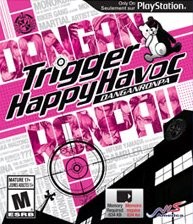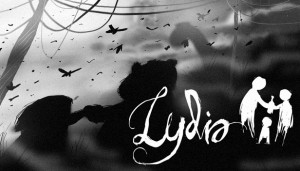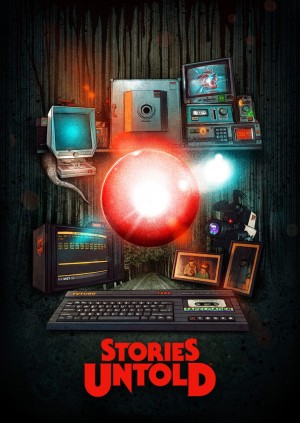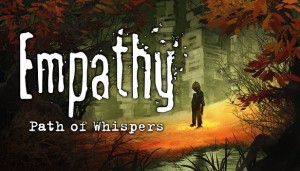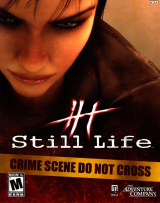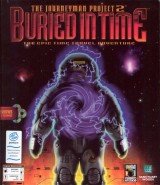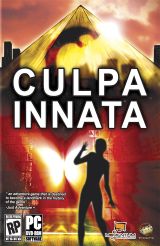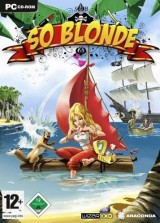Review for Kona
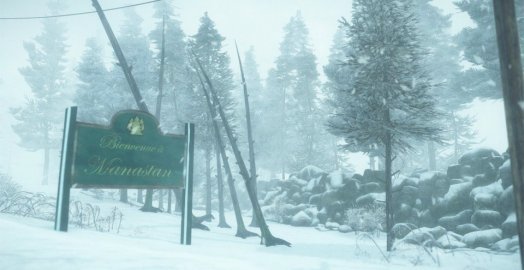
On a couple of occasions, I’ve dipped my toe into the survival game genre to see what the fuss was about, but never lasted long enough to see that toe get bitten off, frozen off or otherwise wither on the vine of my emaciated corpse because I didn’t gather enough berries in my hollowed-out chipmunk skull. The point is, surviving for survival’s sake is boring and I don’t understand the point of most survival games, other than to not die in the most banal way possible. A more imaginative or philosophical person might tell me that the point is to find a purpose in surviving, but finding purpose in life and not dying in the most banal way possible basically describes my day-to-day existence, so I don’t really feel like spending my free time doing the same thing for an imaginary character. I play games to escape reality, not underscore it.
And yet, the whole survival theme still vaguely appeals to me, in the sense that there’s something fundamentally adventure-like in the whole concept of exploring and overcoming the environment, if only there was a compelling reason to bother. For that reason, I’ve actually been anticipating Kona since it first popped up in Early Access a while back. To be fair, Kona isn’t the first game to try legitimately stirring together survival and adventure bits (Miasmata was an earlier noteworthy, if deeply flawed attempt), but it seemed like it might finally get the mix right by treating the story as a motivation rather than an excuse. Sadly, while Kona manages an admirable job of making a survival game that feels like an actual adventure, it ultimately comes up short on gameplay. But even if this isn’t the end of the journey, it’s still definitely a major step in the right direction.
The game casts you as private detective Carl Faubert, who’s been called out to a rural town in Northern Quebec at the behest of the local robber baron who wants to know why the oppressed townsfolk are cross with him. Straightaway, this is a nice departure from the typical survival game setup, in that you’re going into the wilds purposefully instead of as a castaway. Of course, no sooner had I marveled at this during the game’s short but rather serene introduction, than I got into a car wreck and woke up stranded on the side of the road in the middle of a blizzard. Fortunately, instead of forcing me to hunt down a bear to fashion a coat and craft a hut from pine needles, this was just a minor detour used to introduce the survival mechanics. Soon enough, I was back on the road, blizzard be damned, because I’m a professional, not a victim, and I had business to attend to.
Kona succeeds for me where a lot of similar games fail because the environment is only the setting for the story, not the story itself: I wasn’t trying to escape and I wasn’t even trying to survive, so much as I was just trying to stay alive while pursuing my investigation. To that end, anyone looking for a hardcore (or just plain hard) survival simulation isn’t going to get much out of the game. On the other hand, anyone intimidated by the survival hook shouldn’t have much to worry about. The only actual threats to your life are the cold and the occasional wolf. Although it is possible to die, the Canadian wilderness is surprisingly forgiving. Health and fire-starting supplies are abundant. Wolves are easily fended off by tossing them a piece of raw meat (which I recommend over dealing with the clumsy shooting mechanic or trying to beat them off with a crowbar) and places to keep warm (cabins, wood stoves, campsites) are fairly plentiful.
For what it’s worth, there’s also a mental state indicator that seems to deplete of its own free will. Supposedly, maintaining a poor mental state affects how long you can run or how well you aim a gun, but I honestly never noticed any real difference (and trying to aim sucked no matter what), so I tended to ignore it, but if you’re determined to keep Carl in good spirits, it’s easily enough replenished by sucking down a couple of cigarettes, among other things (the game is set in 1970, when smoking was still considered relatively healthy, and more importantly, made you look cool). In my entire play time – with the exception of the endgame, which is a whole other topic I’ll get to – I died exactly once from exposure, and that was because I literally sat outside in the cold to see how long it would take until I froze to death.
In other words, the survival aspect of the game doesn’t really exist to challenge you, just add a layer of atmosphere and urgency to the experience that I’m not accustomed to. Kona is really an exploration game at heart. Your progress is measured by the new scraps of information you add to your journal that ultimately piece together the strange goings-on at Atamipek Lake. But unlike a traditional exploration game, I couldn’t spend infinite amounts of time screwing around kicking over rocks; if I saw something from the road I wanted to investigate, I had to make sure I was stocked with supplies before wandering from the relative safety of my pickup truck; I had to decide whether to keep following the tracks in the snow past the point of no return, not knowing if I would find another place to warm myself on the way; and I would breathe an involuntary sigh of relief every time I wandered into a new campsite or stepped inside a cabin, knowing that my health meter was starting to drain from the cold. Instead of just going, I had to decide if, when and how far I could or should go.
Even if the 3D graphics aren’t top-notch (the models and textures, especially when you’re indoors, are noticeably simple), the overall presentation nails the high lonesome mood. The trees and brush whip violently in the wind, gusts of snow obscure your vision, with often nothing but the shrill pitch of the wind and the sound of your boots crunching in the snow to accompany you. There’s only one (living) character you’ll come across; otherwise your sole companion is an omniscient narrator who chimes in every so often to offer a bit of pointed, dry commentary. The sound of the radio when I climbed back into my truck, playing what I would classify as Canadian honky-tonk, was often a welcome relief (even if it wore a bit thin after a while, looping the same few songs, which actually doesn’t make it much different than real radio, if FM radio is still a thing).
I spent most of the game believing that Kona had finally solved my survival-adventure malaise, and it wasn’t until after I finished the game and the mood had sufficiently worn off that I started to reflect and wonder if that was really the case. In the absence of the survival bits, the gameplay is essentially Firewatch in the snow (but without the chit-chat). There are only two examples of what I would classify as legitimate puzzles (and I don’t specifically recall what they were off the top of my head, which itself says more than I could). The majority of the gameplay affecting story progression involves locating clues scattered about the places you visit or finding the occasional inventory item that you need to progress to some inaccessible area. There’s nothing that especially requires any sort of problem-solving skills, as you’ll eventually find basically everything you need to continue just by looking around. Of the roughly ten hours I spent with the game, I think a determined person could probably power through it in five or less, probably missing a good chunk of story along the way, since it seems you could find the critical items you need to move on without bothering about the rest.
In that way, I came away feeling a little bit disappointed overall. The survival mechanic gave me a sense of agency through the simple act of exploring, so I felt a sense of accomplishment when I found a new location with a new clue, moreso than if I had just simply walked from Point A to Point B, even though that’s basically all I had done. But when it came to the actual story, at the end of the day nothing that I did had any actual influence on events and I ended the game as a witness to the narrative, rather than a participant – living through it being my only actual accomplishment, which is the one goddamned thing I didn’t want.
It doesn’t help that, for all of the game’s leisurely pace and relative freedom to explore as you will throughout, in the end the game takes a sudden and unexpected sharp left turn and literally herds you to an abrupt conclusion – which is also the one time the game forces you to mow down hordes of enemies and the only time I involuntarily died repeatedly. When it was over I literally sat up in my chair and said, “wait, is that it?” This is pure speculation, but the whiplash-inducing ending and the fact that roughly a third of the in-game map is left inaccessible makes me believe that a decision was made to significantly trim back the scope of the game at some late point in its development.
The standard first-person controls work as expected (i.e. just fine) in most cases, but shooting feels especially clunky and unsatisfying, which might be the point, but that’s also why I avoided using firearms whenever possible. Presumably Kona wasn’t made with the intention of being an FPS, but that’s why it’s especially annoying that the game forces you to use a gun towards the end. My only other major gripe with the controls is the schizophrenic menu and inventory system. The inventory is basically split up into three different inventories, based on the type of item (e.g., consumables), which makes sense in theory but in practice isn’t so useful, since I’m not certain how the hell a locked iron box counts as a consumable item, alongside cigarettes and health kits, while wooden logs and matchsticks for the fire are lumped into the regular inventory. The menus, including the inventories and list of documents you’ve picked up, are all built on radial menus, which is all perfectly acceptable until your collection starts to grow, and then you’re hunting through your inventory for increasingly smaller slices of a pie that wasn’t that big to begin with.
The interface was obviously designed with a controller foremost in mind (as evidenced by the title screen prompting you to hit the “A” button, even when you don’t have a controller connected), and as far as that goes, the game works okay with one, but playing a first-person with a gamepad gives me hives. The problem is, navigating the radial menus with a mouse quickly becomes a pain in the ass, considering that a fair bit of your time is spent juggling your inventory (the game limits your personal inventory based on item weight, while your vehicle has an unlimited inventory, so you’ll occasionally have to discard or shuffle things between your vehicle and your person); it’s not really a huge obstacle, but it’s still something you’ll need to deal with on a semi-regular basis).
In the end, I have very mixed feelings about Kona. I’ll admit that the extremely unsatisfying ending probably soured me on the rest of the game after the fact. But the truth is, I enjoyed most of the time I spent playing; otherwise I probably wouldn’t have spent nearly as much time with it. But that also means I can only give it a very qualified recommendation. There’s little here for anyone looking for puzzles or traditional adventure gameplay, but I think it’s worth a look for anyone interested in an immersive exploration game. Despite its shortcomings, I hope Kona finds an audience. There’s a lot of potential for this type of gameplay experience, and while Kona wasn’t the revelation I’d been hoping for, for a little while I believed it was, and that’s still very much worth something.









